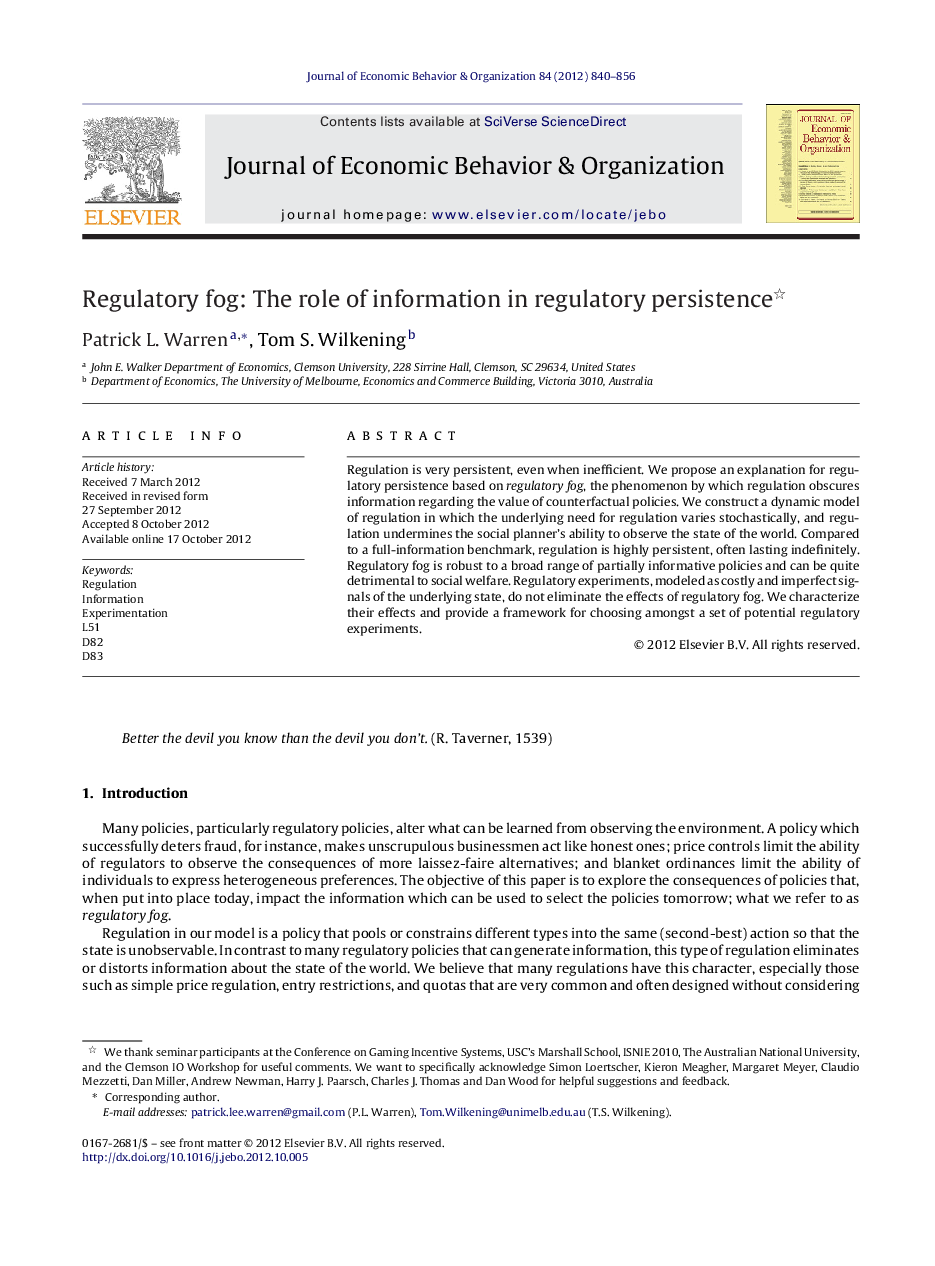| Article ID | Journal | Published Year | Pages | File Type |
|---|---|---|---|---|
| 883840 | Journal of Economic Behavior & Organization | 2012 | 17 Pages |
Regulation is very persistent, even when inefficient. We propose an explanation for regulatory persistence based on regulatory fog, the phenomenon by which regulation obscures information regarding the value of counterfactual policies. We construct a dynamic model of regulation in which the underlying need for regulation varies stochastically, and regulation undermines the social planner's ability to observe the state of the world. Compared to a full-information benchmark, regulation is highly persistent, often lasting indefinitely. Regulatory fog is robust to a broad range of partially informative policies and can be quite detrimental to social welfare. Regulatory experiments, modeled as costly and imperfect signals of the underlying state, do not eliminate the effects of regulatory fog. We characterize their effects and provide a framework for choosing amongst a set of potential regulatory experiments.
► The information consequences of regulation can make it hard to know when deregulation is appropriate. ► This is particularly problematic when regulators are impatient. ► Regulatory experiments can ameliorate this problem, but not eliminate it. ► A good choice of regulatory instruments takes information costs into account.
